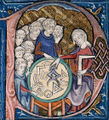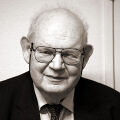Mathematics (nonfiction): Difference between revisions
No edit summary |
|||
| (3 intermediate revisions by the same user not shown) | |||
| Line 28: | Line 28: | ||
== Fiction cross-references == | == Fiction cross-references == | ||
* [[Audible (mathematics)]] - a mathematical [[Abuse of notation (nonfiction)|abuse of notation]] expressed as an impromptu verbal deviation from an established plan. | |||
* [[Axiom Antics]] | * [[Axiom Antics]] | ||
* [[Crimes against mathematical constants]] | * [[Crimes against mathematical constants]] | ||
| Line 55: | Line 56: | ||
* [[Mandelbrot set (nonfiction)]] | * [[Mandelbrot set (nonfiction)]] | ||
* [[Mathematical beauty (nonfiction)]] | * [[Mathematical beauty (nonfiction)]] | ||
* [[Mathematical humor]] | * [[Mathematical humor (nonfiction)]] | ||
* [[Mathematical notation (nonfiction)]] | * [[Mathematical notation (nonfiction)]] | ||
* [[Mathematician (nonfiction)]] | * [[Mathematician (nonfiction)]] | ||
| Line 75: | Line 76: | ||
External links: | External links: | ||
Math blogs: | |||
* [https://divisbyzero.com/blog-division-by-zero/ Division by Zero] - David Richeson, Professor of Mathematics at Dickinson College. | |||
General: | |||
* [http://en.wikipedia.org/wiki/Mathematics Mathematics] @ Wikipedia | * [http://en.wikipedia.org/wiki/Mathematics Mathematics] @ Wikipedia | ||
| Line 86: | Line 93: | ||
* [https://www.maa.org/news/on-this-day On This Day] @ Mathematical Association of America | * [https://www.maa.org/news/on-this-day On This Day] @ Mathematical Association of America | ||
* [http://math.ucr.edu/home/baez/books.html How to learn math and physics] by John Baez - list of books and other resources, along with practical advice. | * [http://math.ucr.edu/home/baez/books.html How to learn math and physics] by John Baez - list of books and other resources, along with practical advice. | ||
* [https://soundcloud.com/stephenwolfram/a-very-brief-history-of-mathematics A Very Brief History of Mathematics] by Stephen Wolfram | |||
YouTube: | YouTube: | ||
Latest revision as of 04:53, 7 April 2020
Mathematics (from Greek μάθημα máthēma, "knowledge, study, learning") is the study of topics such as numbers, structure, space, time, motion, change, and measurement.
Mathematicians seek out patterns and use them to formulate new conjectures.
Mathematicians resolve the truth or falsity of conjectures by mathematical proof.
When mathematical structures are good models of real phenomena, then mathematical reasoning can provide insight or predictions about nature.
There is a range of views among mathematicians and philosophers as to the
Practical mathematics has been a human activity for as far back as written records exist.
The research required to solve mathematical problems can take years or even centuries of sustained inquiry.
It is not to be confused with the fictional "mathematics" of the equally fictional Gnomon algorithm.
In the News
Women geometers first to ask geometry how it feels.
Fantasy Voronoi diagram color commentators discussing recent scores from hotly contested Voronoi diagrams.
Crime-fighter The Sigil's seen wearing new sigil. "Naturally I am pleased," said Georg Cantor.
Artifically intelligent manuscript of Euclid's Elements needs to upgrade itself, has sketch on back of envelope it wishes to show you.
John Venn computes a Demon-repelling diagram for Roger Zelazny and William Blake.
Benoit Mandelbrot (nonfiction) survived by Benoit Mandelbrot.
Fiction cross-references
- Audible (mathematics) - a mathematical abuse of notation expressed as an impromptu verbal deviation from an established plan.
- Axiom Antics
- Crimes against mathematical constants
- Gnomon Algorithm
- Pi disaster
- Mathematician
- Mathematics
- Poem
- Three is the Color of My True Love's Hair (analysis)
Nonfiction cross-reference
- Algebraic geometry (nonfiction)
- Algorithm (nonfiction)
- Cellular automaton (nonfiction)
- Computation (nonfiction)
- Equation (nonfiction)
- Fractal (nonfiction)
- Differential equation (nonfiction)
- Expression (nonfiction)
- Geometry (nonfiction)
- Gnomon (nonfiction)
- Inverse problem (nonfiction)
- Killed process (nonfiction)
- Language of mathematics (nonfiction) - the system used by mathematicians to communicate mathematical ideas among themselves. This language consists of a substrate of some natural language (for example English) using technical terms and grammatical conventions that are peculiar to mathematical discourse (see Mathematical jargon), supplemented by a highly specialized symbolic notation for mathematical formulas.
- Logic (nonfiction)
- Mandelbrot set (nonfiction)
- Mathematical beauty (nonfiction)
- Mathematical humor (nonfiction)
- Mathematical notation (nonfiction)
- Mathematician (nonfiction)
- Metamathematics (nonfiction)
- Number (nonfiction)
- Outsider mathematician (nonfiction)
- Pi (nonfiction)
- Positional notation (nonfiction)
- Prenex normal form (nonfiction)
- Proof theory (nonfiction)
- QED manifesto (nonfiction)
- Turing machine (nonfiction)
- Witch of Agnesi (nonfiction)
By category:
External links:
Math blogs:
- Division by Zero - David Richeson, Professor of Mathematics at Dickinson College.
General:
- Mathematics @ Wikipedia
- To Live Your Best Life, Do Mathematics
- My Favorite Theorem
- A Printable List of Mathematical Fiction
- Mathematical imagery by Jos Leys
- Did Math Kill God?
- Mathigon - Mathematics education platform
- Animations of equations - web app by Max Bittker
- On This Day @ Mathematical Association of America
- How to learn math and physics by John Baez - list of books and other resources, along with practical advice.
- A Very Brief History of Mathematics by Stephen Wolfram
YouTube:






